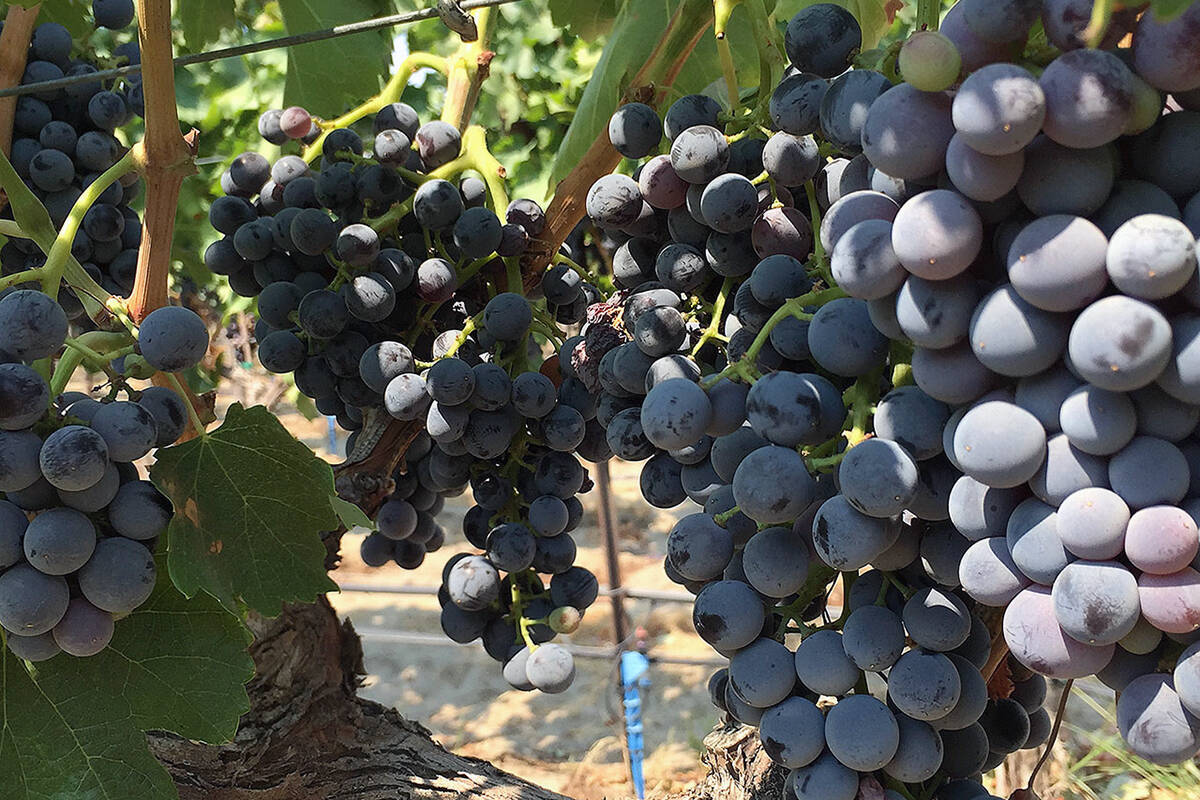South Okanagan West Kootenay MP Richard Cannings stood in the House of Commons last week asking the federal government to step in and help B.C. grape and fruit growers devastated by January’s freezing damage.
But the local MP didn’t find any help forthcoming.
“Mr. Speaker, everybody knows that my riding makes the best wine in Canada but January’s extreme cold snap caused widespread damage to grape and fruit crops for the second year in a row. Some grape growers have experienced 100 per cent loss of their vines,” said Cannings.
“On top of that, smoke taint from the now-annual forest fires continues to affect many vineyards. Without government help to replant their vines, many wineries could be forced to close. Will the minister provide assistance to help B.C. grape growers and wineries survive climate change?” Cannings asked.
But no commitments were made by the federal government in response.
Parliamentary Secretary to the Minister of Agriculture and Agri-Food Francis Drouin said they will continue to ‘support’ the wine sector.
“Mr. Speaker, my heart goes out to grape growers in B.C. and across Canada. I know that in Nova Scotia, they have gone through climate change events. Obviously, this is a serious issue. We have been there to support the wine sector previously and we will continue to be there to support the wine sector in the future,” said Drouin.
Along with B.C. wines suffering catastrophic vine damage, Alberta threatening wineries to stop shipping direct, devastating wildfires and loss of tourism, come April 1, the federal government is increasing the excise tax of domestic wine by 4.7 per cent.
“It’s hard for the smaller family-run businesses to survive. I talked to one winery this week and they told me they’ve lost over 90 per cent of their crop,” said MP Dan Albas.
There are government supports in place for crop recovery but by the time funds reach a winery, it may be too late, he added.
Penticton’s TIME Winery general manager Christa-Lee McWatters, daughter of the late Harry McWatters and board chair of the BC Wine Growers Association has been working non-stop on the Alberta issue as well as the crop damage. She met with both the B.C. Ministry of Agriculture and Minister of Tourism last week.
“It’s a pretty scary time for wineries. I’ve been doing this for 30 years and I’ve never seen anything like this. Some will weather this, but not all will,” she said. The industry is in need of around $317 million of government funding to replant.
The B.C. wine industry contributes $3.75 billion annually to the B.C. economy, according to the Wines of B.C.
“We’ll only know the true impacts of the cold snap in the coming months, but everything points towards a terrible situation for B.C. wine this year. Couple that with reckless policies coming out of Alberta that seek to stop all direct-to-consumer B.C. wine sales into their province and you have a perfect storm,” said MLA Ian Paton, BC United Shadow Minister for Agriculture.
B.C. United is suggesting immediate federal and provincial support given the lack of grapes in the 2024 harvest. He is suggesting they create a Canadian Vintners Quality Alliance (VQA) certification and temporarily expand the existing tax incentives for wines with 100 per cent B.C.-grown grapes to include wines produced in B.C. with 100 percent Canadian-grown grapes.
They also want to work with the Ontario government and Ontario wine producers to reduce any barriers to importing Ontario grapes and juice to prevent the need for imports from Washington State.
Roly Russell, MLA for Boundary-Similkameen promised more help to growers hit by climate change.
“Last year, approximately $27 million in production insurance claims were provided to growers who lost crops due to last winter’s freeze,” Russell said, while acknowledging more needs to be done.
READ MORE: Okanagan wineries say timing couldn’t be worse for Alberta to wage wine war
READ MORE: Premier Eby questions Alberta’s reasoning behind trade dispute over B.C. wine

